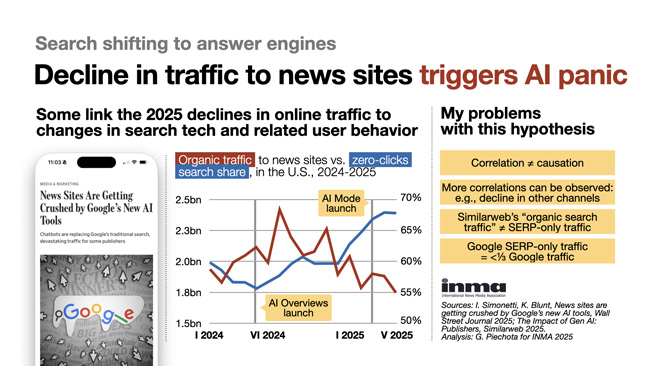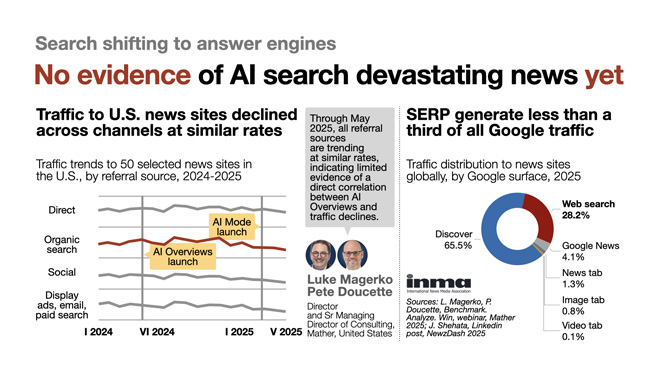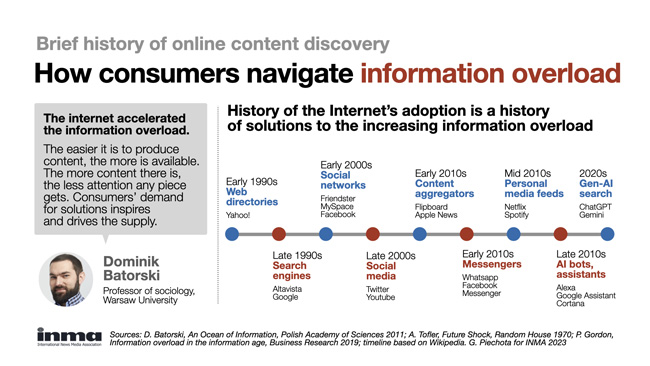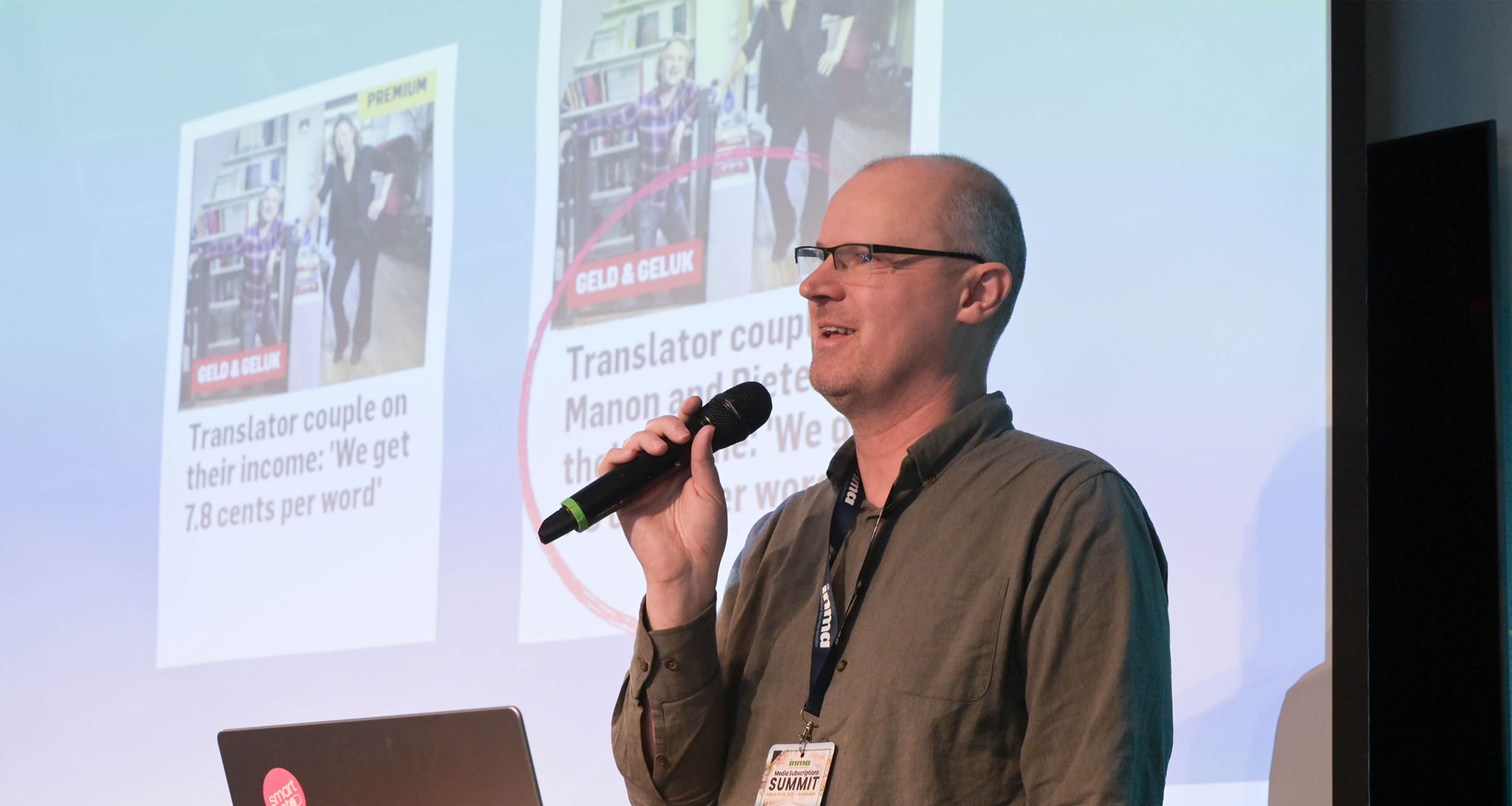How publishers can prepare for AI search disruption
Readers First Initiative Blog | 20 July 2025
Online publishing is gripped by AI search panic. While this panic is premature, news media companies should double down on direct relationships with audiences.
Since 2024, Google has been rolling out new AI search features. By May 2025, AI Overviews were live in over 200 countries, and the more advanced AI Mode was active in just two: the United States and India.

Google’s shift from referral engine to answer machine made publishers anxious. The company holds 90% of the global search market and sends one-third of online publishers’ traffic.
In Q2 2025, Similarweb reported the share of Google searches resulting in zero clicks increased, while total referrals from Google declined.
Headlines screamed: “News sites are getting crushed by Google’s new AI tools.”
No evidence of devastation — yet
U.S. consultancy Mather analysed traffic to 50 U.S. news Web sites through May 2025.
At a Webinar, Mather’s Luke Magerko and Pete Doucette reported “all referral sources trending at similar rates to search, indicating limited evidence of a direct correlation between AI Overviews and traffic declines.”
In my view, recent U.S. traffic declines could be explained by a slower news cycle, compared to 2024’s presidential elections, Olympics, and other major events.
Demand for news closely follows news cycles — as shown in INMA data from 274 member news brands from 2019 to 2025.
Moreover, Similarweb doesn’t distinguish between Google Search referrals from other surfaces, like Discover or News.
According to NewzDash, Web search accounted for just 28% of Google referrals to news sites in 2025. Discover accounted for 66%.

The looming disruption
Anyway, while the current AI panic looks premature, the disruption is likely coming.
The Internet, social media, and now generative AI have made it easier to create and distribute information. The result? Overload.
It’s no wonder consumers are turning to tools that help them navigate this flood — search engines, social feeds, personalised aggregators, and now, AI answer machines.
In a 2025 survey by Oxford’s Reuters Institute, 7% of Americans said they already use AI bots for news.
The giants with billions of online users — Google, Meta — are positioned to drive mass adoption. But they’re not alone: Open AI, Perplexity, and others are pushing boundaries.
When consumers get an answer directly from AI, they decouple content discovery from consumption, breaking the current business models that rely on showing ads or subscription offers on linked Web sites.
I studied these disruption patterns with professor Thales Teixeira at Harvard Business School. Our 2019 book Unlocking the Customer Value Chain introduced the theory of decoupling. And it still resonates.
(And now, after Chinese and Korean editions, it’s just been published in Vietnamese: Cảm ơn!)

Strategic responses
As with previous waves of disruption, the key is understanding customer decision-making and adapting your business model accordingly.
Professor Teixeira and I identified two broad strategic responses. Here they are applied to news media.
1. Re-couple what AI decouples:
Protect content from scraping and unauthorised use.
Invest in brand and product differentiation: e.g., in-depth, personality-driven, expressive journalism, and human-centred communities that AI can’t replicate.
Own your distribution via direct traffic, mobile apps, and e-mail.
2. Update the business model:
Shift from reach-based monetisation to engagement-based; think subscriptions or first-party data-driven advertising.
Do the jobs digital platforms and aggregators do: aggregate, personalise, improve user experience.
Demand compensation from AI companies that use your content.
Takeaways
Panic helps no one. Platforms change. Consumers evolve. AI accelerates. The sustainable path forward? Own the relationship. Start where you are, but start now.
Don’t miss the recent INMA report by INMA Editor Paula Felps, “As search ends for news, here is what’s next.” Free download for members.
Greg’s Readers First newsletter is a public face of a revenue and media subscriptions initiative by INMA, outlined here. INMA members can subscribe here.






























